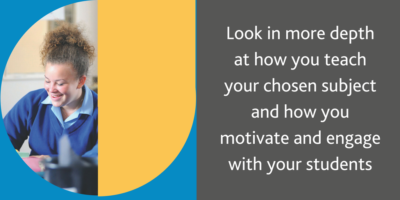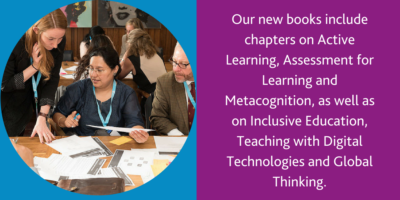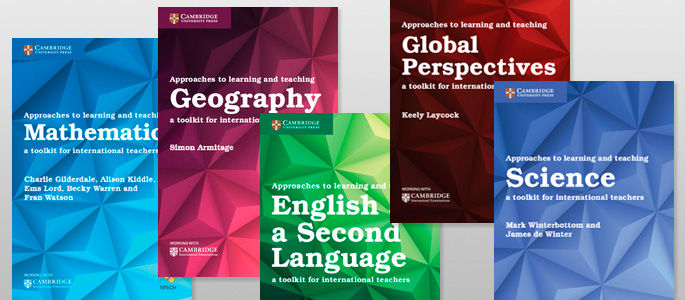If like me, you are a keen reader, you will have a pile of books somewhere nearby that makes you feel guilty every time you see it. Perhaps it contains books friends or colleagues recommended you read, or maybe there are books you bought on a whim or simply because you were attracted by the cover. Books often sit in my pile because they are too long or just not for now: the time and space will come one day when I am able to read them.
Paradoxically, this was one of our starting points for designing and commissioning a new series of books with Cambridge University Press. Our intention is not to add to your guilty challenge but rather to reduce it. We set out with the goal of producing a range of digestible texts that you could read cover to cover or dip into from time to time. The series summarises the latest and best, tried and tested approaches to learning and teaching, and also offers you some time-saving lesson ideas.
Over the course of the next few months, the complete 12-book series will become available. We are covering all major subject groups across the curriculum, and also included a text specifically aimed at the Primary level. Each of the authors is an expert in their field and many have also worked as trainers all over the world on our behalf. We asked them to write in a style that is conversational as though they were speaking personally to you in a workshop environment.

The focus of the books is deliberately subject rather than syllabus-specific, although we have made occasional reference to Cambridge IGCSEs, which is the level of teaching at which the books are pitched. When you read the books we want you to set aside for a while assessment objectives and grading, and take the opportunity instead to look in more depth at how you teach your chosen subject and how you motivate and engage with your students.
Those of you who are familiar with our Enrichment Professional Development courses will see much that is in common with the themes we present within them. There are chapters on Active Learning, Assessment for Learning and Metacognition, as well as on Inclusive Education, Teaching with Digital Technologies and Global Thinking. There are sections as well on how to reflect on your own practice and how to recognise – and to some extent quantify – the impact of your teaching on your students.

Whatever your experience and expertise we are confident that you will find much that is useful in the series. We hope that they will inspire you to think more closely about what you do in your classroom, and why and how you do it. We encourage you to engage with any of your colleagues who also read books in the series so that you can have meaningful conversations and explore together the best ways to work with your students.
If there is one book this year that does not stay too long on your reading pile, we hope that it will be from this new series.
The Approaches to Learning and Teaching series is the result of a close collaboration between Cambridge University Press and Cambridge Assessment International Education. The series editors are Paul Ellis, Head of Teaching and Learning, and Lauren Harris, Development Manager.





